CKD Management and Cognition
By Connie Rhee, MD, Joel M. Topf, MD, FACP - Last Updated: April 21, 2025Connie Rhee, MD, is section chief of nephrology at the VA Greater Los Angeles Healthcare System and a professor in-residence in the Department of Medicine at the David Geffen School of Medicine at the University of California, Los Angeles. In 2023, she became the first female editor-in-chief of the Clinical Journal of the American Society of Nephrology (CJASN).
Dr. Rhee spoke with Nephrology Times editorial board member Joel Topf, MD, in April at the National Kidney Foundation Spring Clinical Meetings 2025 (SCM25) in Boston, Massachusetts. She presented 2 abstracts at SCM25, “Impact of Conservative Management vs. Dialysis on Cognitive Dysfunction in US Veterans with Advanced CKD” and “Continuous Glucose Monitoring Utilization Among US Veterans with Diabetes and Chronic Kidney Disease.”
Dr. Topf: Joel Topf here with Nephrology Times. I’m here with Dr. Connie Rhee. Dr. Rhee, you’ve been on a rocket ship recently. You became chief of the nephrology section at the [VA Greater Los Angeles Healthcare System]. And then a year later, you became CJASN‘s first female editor. Amazing stuff.
Dr. Rhee: Thank you so much. Your feedback means a lot to me. Dr. Topf, I’m a huge fan of your work.
Dr. Topf: Thank you. That’s awesome. I love my fans. That’s great.
Dr. Rhee: And I’m one of your biggest fans.
Dr. Topf: Excellent. One of the things that you’re working on that’s been becoming a bigger and bigger issue in nephrology is this conservative care. I think we have done a bad job in nephrology. We have this great therapy, dialysis, but [we are] not answering an important question of who benefits from that.
Dr. Rhee: I think that’s a great question. I mean, we’ve been very fortunate that end-stage kidney disease or advanced kidney disease is a condition for which in the US we have universal healthcare coverage. But in some ways, that has led to some inertia and looking for more alternative, patient-centered approaches for handling advanced CKD [chronic kidney disease], such as conservative care, that really should be driven by patients’ values and preferences.
Dr. Topf: One of the things that [we’ve found]—when we’ve compared dialysis to conservative care—is how little duration of life we actually gain from hemodialysis. I know there was a study, I think it was in KI [Kidney International] last year, from Tamura, which—it was depressing, right?
Dr. Rhee: Yes. I mean, these are very important points. As we look at a lot of our global colleagues, many international experts have been studying the utilization of conservative care. They’ve published a lot of meaningful work showing the marginal survival benefit or benefit in terms of other outcomes with dialysis with respect to less aggressive approaches like conservative or preservative management. But in the US, we still do have a paucity of studies looking at our populations. That’s an area that we hope to fill, with colleagues.
Dr. Topf: Your group has a poster at this session on cognition in conservative care versus dialysis. What were you looking at there?
Dr. Rhee: Well, thank you so much for the opportunity to highlight this work. It was a team effort. I want to give a lot of kudos to my co-PI [co–principal investigator], Dr. Kam Kalantar. We have a currently funded NIH R01 study called the OPTIMAL study, comparing conservative care with dialysis. This is in collaboration with other institutions: UCLA, VH ELA, VA Long Beach, Harbor-UCLA, Memphis VA, and also UC Irvine. I also want to give a lot of credit to my mentee, Dr. Yoko Narasaki, a postdoc who led the analyses.
Essentially, because dialysis has been a longstanding paradigm for advanced CKD progressing to ESKD [end-stage kidney disease], we wanted to look at the comparative effectiveness of conservative management versus dialysis. We had the opportunity to leverage data from the national VA database. Veterans actually comprise 13%, roughly, of incident ESKD patients in the US. They are an important population that we care for, a vulnerable population.
Therefore we, using propensity score matching, looked at advanced CKD patients with eGFR [estimated glomerular filtration rate] less than 25 [mL/min/1.73 m2] who are either transitioning to dialysis or who did not transition to dialysis within 2 years of that index GFR over the period of 2010 to 2019. We looked at the impact upon cognitive outcomes, including dementia, mild cognitive impairment, and an aggregated outcome of mild cognitive impairment and dementia.
Dr. Topf: I don’t do a lot of geriatrics and mild cognitive impairment; in my mind, that’s just a spectrum. Is that just real mild dementia? What does that look like?
Dr. Rhee: Yes. We ascertained these end points using diagnostic codes…
Dr. Topf: This is really just kind of observational data. In the VA system, these people get these types of testing done, and it becomes part of their medical record. It’s actually a great cohort to look at. What did you find?
Dr. Rhee: Notably, we started with a national cohort of about 90,000 US veterans with this advanced CKD with eGFR less than 25 over that time period. Then we looked at those in the dialysis group and those who did not transition to dialysis. We did propensity score matching on a lot of different variables to try to have a balanced cohort.
Although it’s not a clinical trial, we’re doing a pseudo clinical trial, trying to make a comparison between apples and apples instead of apples and oranges. They had somewhat balanced characteristics between the dialysis and nondialysis groups. We found that across multiple primary, secondary, and sensitivity analyses, those who transitioned to dialysis had a roughly 35% to 40% higher risk of developing de novo or incident dementia, mild cognitive impairment, or a combined outcome of mild cognitive impairment and dementia compared to the nondialysis group.
Dr. Topf: Thirty to 40% increase. The question is, what do you think caused it? Do you think the dialysis is causing that? Or do you think the people that are progressing to dialysis tend to be sicker or have more vascular disease are going to be more prone to that, whether they did dialysis or not?
Dr. Rhee: That’s a great question, and we hope that these findings can engender more discussion about this. As we’ve discussed before, as [this is] an observational study, we can’t conclude causal relationships, but we do hope that this serves as good premise or as preliminary data to do further investigation, looking at causality or mechanisms. But certainly in terms of biologic plausibility, with the human dynamic shifts that we see with dialysis…
Dr. Topf: Right. We’ve seen MRI data showing loss of white matter. It does fit but it’s also concerning.
Dr. Rhee: Yes. Dialysis is important in terms of being life-preserving therapy. There are certainly patients who substantially benefit from dialysis in whom it can not only improve survival but also other patient-reported outcomes. But there are segments of the population with advanced CKD who may not perceive benefit and who may not particularly have better patient-centered outcomes such as cognition. Those are questions that we need to tease out: Which patients are appropriate for dialysis? Which patients are appropriate for alternative patient-centered approaches?
Dr. Topf: Before we started this interview, you were talking about some of that from the CONVINCE trial, which is actually pretty interesting. Remember, the CONVINCE trial was the randomized trial of hemodiafiltration versus conventional diffusive clearance with dialysis. What did they find in the CONVINCE trial in regard to cognition?
Dr. Rhee: So, [it was] a very exciting study that has garnered a lot of attention in terms of comparing hemodialysis versus online hemodiafiltration. But essentially in the study published by Rose et al, they found that with online hemodiafiltration, there was some improvement in quality of life, but particularly, the cognitive end points. Cognition is a critically important outcome to our patients in terms of their functional status, their quality of life, relationships with care partners.
Dr. Topf: It’s one of the things that people are most frightened of—dementia. It is a horrible loss. Now can we read about that in CJASN?
Dr. Rhee: Well, we’ll see. You know, I’ll, of course, have to recuse myself from any submissions. But we hope that in some journal, the readership will have the opportunity to delve into the work, and hopefully, this will inspire more work by other collaborators and colleagues in the field.
Dr. Rhee: Let’s shift gears a little bit. You’ve been the editor of CJASN for just over a year, about 15 months now. What has been most rewarding in that job?
Dr. Rhee: My goodness. Well, so many things. I really consider it the highest privilege to be able to serve my community and our field in this role. When I was a trainee, I was reading CJASN as my main curriculum, and to now have the opportunity to be able to give back to the journal and to work with a really talented group of editors and reviewers and our authors and readership and managing editorial team, to really be a voice for the kidney community—I’m so grateful, and it’s really wonderful to work with and get to know so many amazing people in our field for this effort.
Dr. Topf: Then what’s been the most surprising thing about the job? What did you not expect about being the editor?
Dr. Rhee: I have a bit of a shy personality, so I tend to just put my head down and do my work. But through this opportunity, I’ve been so surprised by all the friendships and new collaborations and relationships I’ve developed. You know, one of our major goals of CJASN is to really have a global reach. Through this opportunity, it’s been just a delight to be able to connect with more patient colleagues, health professionals, other nephrologists, non-nephrology physicians—locally and also globally. It’s going to be a wonderful journey together.
Dr. Topf: You heard it here first: It really is about the friends you make along the way.
Dr. Rhee: Definitely, yes, absolutely. We consider you a good friend, Dr. Topf, too.
Dr. Topf: Thank you for joining us for this interview with Nephrology Times. This has been great.
Dr. Rhee: It’s an honor. Thank you so much.

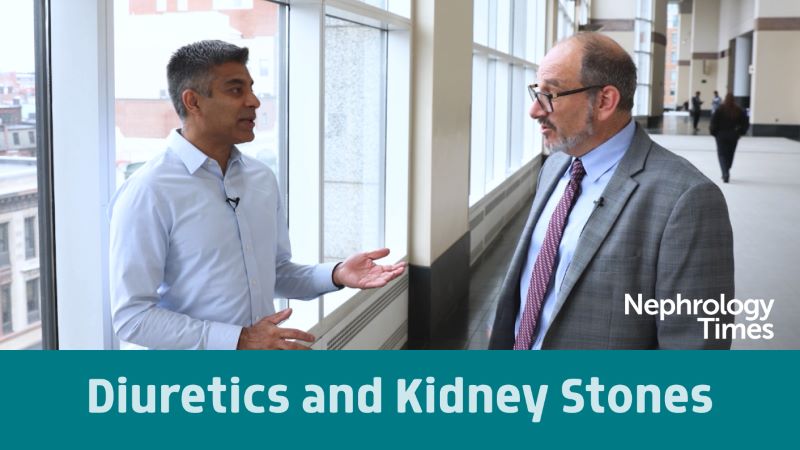
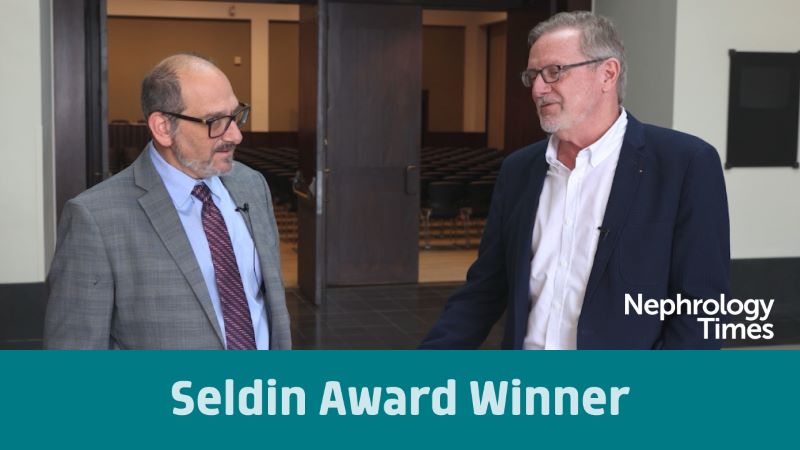
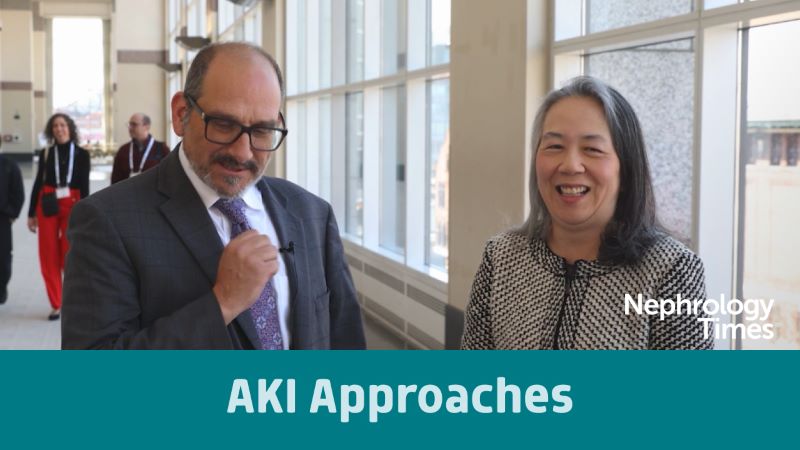
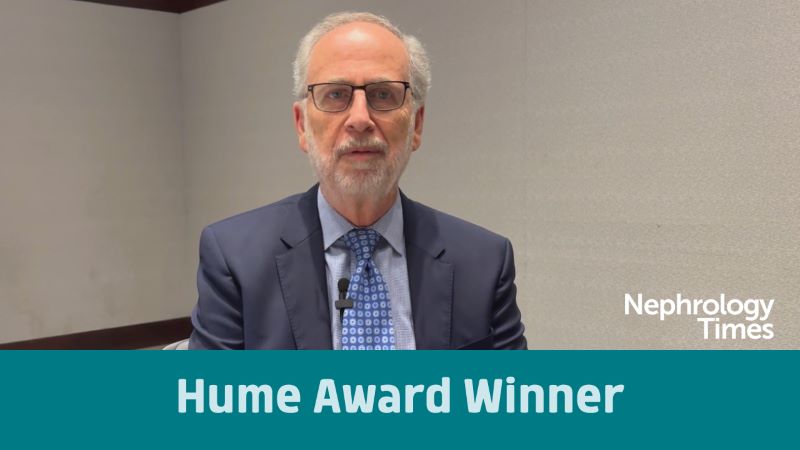
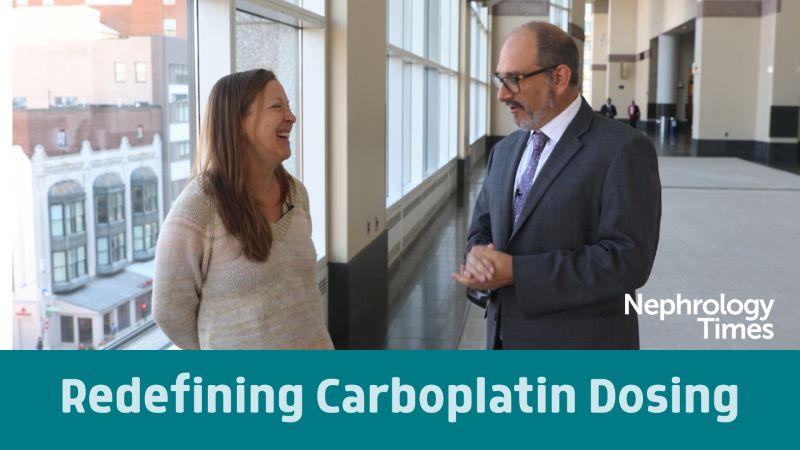

 © 2025 Mashup Media, LLC, a Formedics Property. All Rights Reserved.
© 2025 Mashup Media, LLC, a Formedics Property. All Rights Reserved.